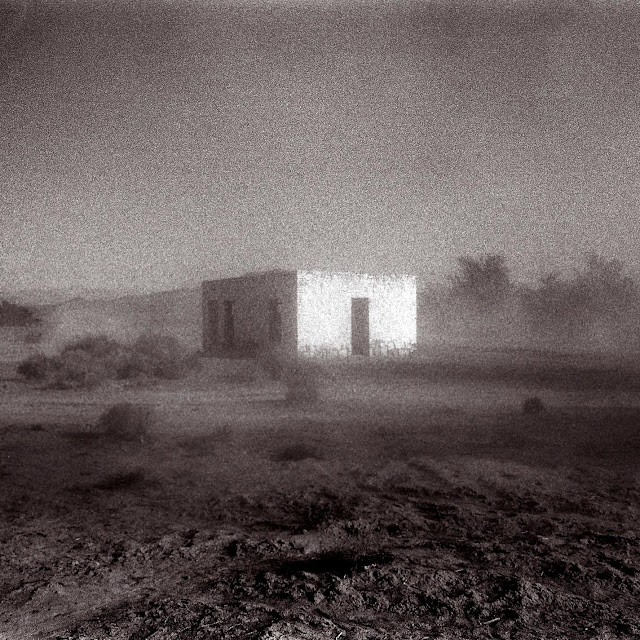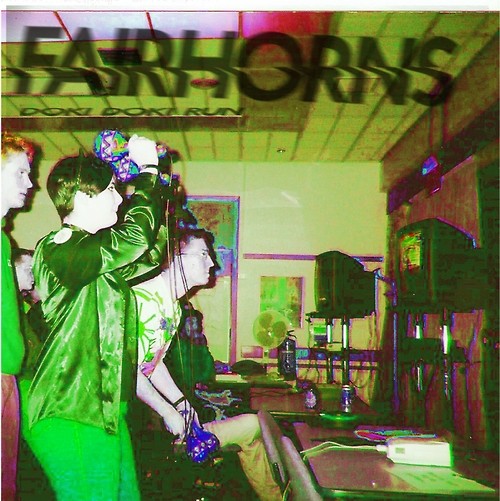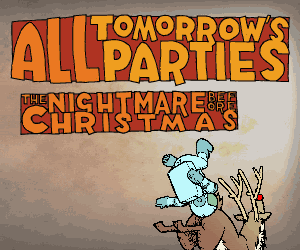
When it comes to the progressive ingenuity of yesteryear few records could even conceive of doing battle with Gloss Drop: an explorational work of avant-garde invention, it saw the streamlined New York outfit punch well above their weight. It is and was their opus, and it remains revolutionary. This time however, although it may again be Battles' name on Dross Glop (the droll epithet attached to this collection of radical overhauls) and even if their madcap freeform fingerprints may be smeared indelibly all over it they've handed the gloves over to a plethora of pioneering genre straddlers to beat the thing into varying degrees of pulp. And the resulting molten mêlée is arguably enough to prompt the disremembering of "the first time".
For whilst Gloss Drop may still sound crisply futuristic and therefore ultra-contemporary in a sense you may have, as we did long ago, pummelled it into overplay only to now be left longing for some form of rejuvenation. At which point we urge you to turn to Dross Glop: far from your typical remix record, Battles' painstakingly selected trailblazers morph its previously cultivated parts into rampaging, imaginative savages that combine to constitute an uncontainable beast of incontestably awe-inspiring majesty. Consequently, Dross Glop transcends the concept of milking material for exclusively monetary dividend; instead ripping the record apart so that it may be reconstituted as though some foam-mouthed Frankensteinian creation. It's not that its release could plausibly engender a detrimental effect upon its architects, but it may certainly be uttered in the same breathtaking gasp...
Gloss Drop was of course a quite collaborative effort in the first place, with anyone and everyone from Gary Numan and Kazu Makino to Matias Aguayo and Yamantaka Eye pitching in ideas and idiosyncrasies. Consequently most conventional coherency was displaced by a fluid yet gooey ooze and Dross Glop is glued together by similarly squirming stylistic adhesion. The ominous brood of Kangding Ray's Toddler for instance has little to nothing in common with the jazz-infused ambient minimalism of Qluster's Dominican Fade, despite sitting beside it in its final tracklisting. Transferring ownership of the tracks as above is entirely intentional for each piece is stained with both individualism and innovation to starkly differentiate original from interpretation.
And if Battles can be recognised for their liberal approach toward whichever genre it may be that we may futilely attempt to associate them with then this sense of emancipation evidently translates to these re-imaginings, for some are far more loyal to their forefathers than others. Hudson Mohawke retains the carnivalesque Africana of Rolls Bayce, albeit whilst simultaneously transposing it into joyous, elevatory chord progression and bolstering its outro with a delectable steel pan shimmer while Brian DeGraw's grunt-tastic take on Ice Cream is a mercurial mangle broken down somewhere between its prototype and the squelchy synth belching he last year inputted into cosmic sonics Gang Gang Dance's Eye Contact. My Machines (envisaged by Patrick Mahoney and Dennis McNany) becomes Kraut-y, minimal techno masterpiece, expanding ecstatically as it awakens whilst Eye's Sundome, the track he initially lent frenzied yelps to, shifts from eerie brutaliser hefty on Boredoms rhythms to feel-good ragga malfunction midway through. So far so faithful then..?
Well, Silent Servant's glitchy wriggle on Inchworm breaks the mould and, if adjusted to tinnitus-inducing frequency, quite possibly your speakers and nervous system too whilst avant-hop duo Shabazz Palaces spank White Electric for six as they spit surreal rhymes over its lugubrious drones. However it's the first remixes to have been released, those provided by The Field and Gui Boratto (that appositely begin the record) which strike the balance most muscularly. Axel Willner's schizoid rustle through Sweetie & Shag and Boratto's anthemic thrumming to Wall Street – on which Dave Konopka's gangly Gibson reverberations stalk the persistent menace that underlies the track – stand out as preeminent demonstrations of the actual worth of the remix and in doing so, Battles' travails to exercise an accessible experimentalism again go off without so much as a hitch.
























